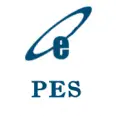In 2016, the DevOps movement has steadily gained momentum leading to massive acceptance by small tech start-ups as well as mainstream organizations.- According to a 2016 survey, a record 74% technology professionals said that they were considering DevOps adoption this year, which is 8% more than 2015.
Organizations successfully implementing DevOps tools and practices, as a general rule, tend to be ahead of their competitors across key metrics like profitability and growth. The technological benefits of DevOps, in turn, enables teams to reap immense business benefits while impacting bottom line.
While a lot of software-based organizations have been early adopters of DevOps, its scope is now more far-reaching than before. Indeed, there are businesses out there dealing in actual products and devices that wonder whether DevOps is the right methodology for them. In this blog, we will discuss that the attributes of DevOps that have made it such a phenomenal success in software engineering, can be further applied to the world of product engineering services.
So, why should you care about DevOps in product engineering services?
The biggest reason is because most electronic and industrial devices and gadgets that we have today run on the software inside them creating tons of measurable data which can be mined for actionable business intelligence. This software itself needs to be managed, tested and updated in real time, which in turn creates the need for faster and continuous delivery, and operational agility across cloud and mobile systems. In short, DevOps!
Breaking the Cost vs. Quality Trade-off
Most organizations, at some point, have to tradeoff between cost and quality in order to meet delivery timelines.
In the world of product engineering services, such a compromise can become a major liability moment. Considering the sensitivity and criticality of the project involved, say a City surveillance camera eco-system, failure of Live devices is just not an option.
By employing a DevOps methodology, we can have tools in place to automate tasks that help in saving time. This involves setting up virtual machines, testing and installing firmware and software and updating devices remotely. This end-to-end automation saves us cost and time, freeing up individuals to concentrate on the product itself. At the same time, QA becomes an integral part of the overall process instead of being a separate function. Teams are able to now coordinate with each other more actively which helps in preventing problems rather than resolving them once they happen.
To know more on how the DevOps environment encourages better quality production, read an earlier blog on the role of QA in DevOPs.
Improving the Customer Experience
Technology has pervaded almost every aspect of our lives today. From the transport sector to any kind of food, to banking and entertainment to checking up on your home devices remotely; everything is literally at our fingertips via apps on our phones or tablets. These apps or services have to be quick, intuitive and a step ahead of customer needs.
In the world of connected devices, on the other hand, we deal with an additional layer of the physical element; namely GPS, cameras, public transport vehicles, medical devices, etc. With the application of the DevOps methodology in this environment, the team can proactively prepare for real-time failure scenarios with the use of device simulators. We can implement constant monitoring, and instant feedback. The faster time-to-market with updates and continuous improvement of quality leads to a constantly improved customer experience.
The 3C’s: Collaboration, Communication, Cooperation
In any business, customer delight is the single biggest contributor to the bottom line. Using connected devices, we gain the ability to provide a customer with the freedom to use any device and seamlessly switch between devices and platforms without compromising on the experience bringing together multiple skill sets, teams and departments.
By integrating DevOps Services in the development, deployment and maintenance of devices, a seamless 360-degree integrated environment can be achieved that allows for continuous feedback loop, live monitoring and zero chances of failure.
In a DevOps environment where code is easy to configure without the fear of loss of quality, it is far easier to cater to custome’ demands ranging from device compatibility to newer features and customization.
In Summation
A DevOps-based environment will become a necessity in the world of connected devices and IoT as the amount of devices and the data they generate increases. To know more about how eInfochips can help your organization transition into an end-to-end DevOps environment, download our whitepaper on DevOPs in the age of connected devices or get in touch with us directly at marketing@einfochips.com.












